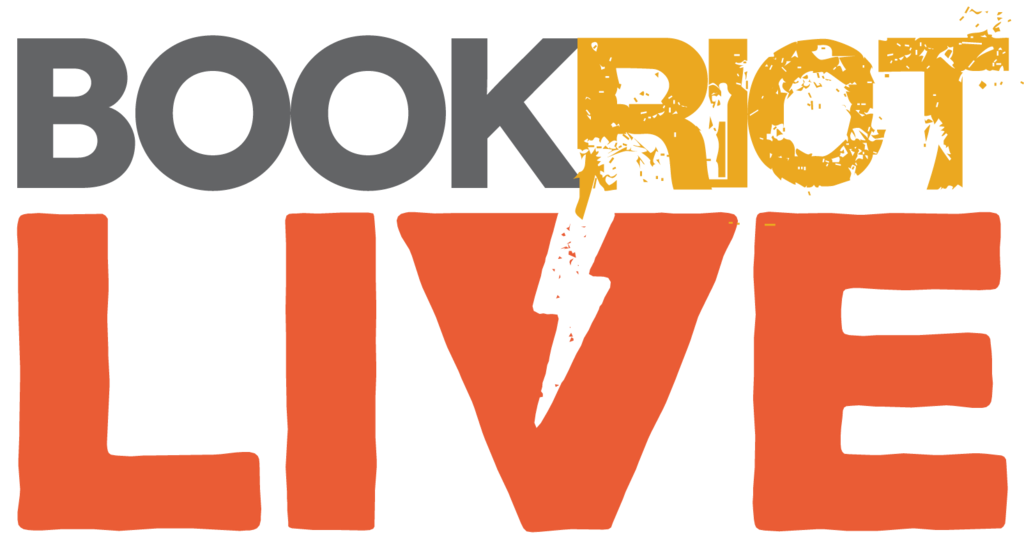
Why I Quit Goodreads (or, The Bookternet Is Not Safe for Women)
A few months ago, I quit Goodreads.
Partly, I was paring back my social media life to those that are most useful to me (Twitter) or make me happiest (Instagram). Partly, I found the Kathleen Hale controversy profoundly upsetting. But mostly, I was just sick of being harassed. I was tired of being questioned by authors or rabid fans about my three-star reviews (by the way can we talk about how a three-star review is not a bad review, people?), messaged and spammed and poked at to read someone’s self-published magnum opus, and invited to everything all over the world always. But those are minor annoyances. The Kathleen Hale controversy snapped into focus something I had always kind of wondered about: as a woman, putting my views on the internet is an act of risk-taking.
And this is gendered, folks. I don’t think Hale would have stalked a male commentator, and I know my male colleagues here at Book Riot get very different reactions for saying the same things my female colleagues do. This is about being a woman who wants to exercise her voice, and this is about the people who will always read that voice as a threat.
Once, a week or so before I deleted my Goodreads account, I gave a book that shall remain nameless a two-star review. A man claiming to be the author’s publicist messaged me to ask that I reconsider. I ignored the message (I never had that many followers on Goodreads and it seemed to me that I was a small potatoes target) and, a day or so later, received an angrier message, this time demanding that I take down the review. I wrote back and noted that I had made some positive points about the book but that overall it didn’t work for me. Reviews on Goodreads, I noted, are personal reflections for the most part — mine certainly were — and I wasn’t condemning the book as a whole. The person wrote back and asked, “How would you like it if people used the internet to say mean things about you? It can be done, you know.”
Hm, I thought to myself. Hm. Kathleen Hale just drove to some Goodreads reviewer’s house. There’s that weird blog for bitching about badly-behaving reviewers. And this guy is being kind of threatening in a way that I don’t like. What’s the cost-benefit for me to stick with Goodreads, in this context?
So I didn’t. I quit.
I don’t think “naming and shaming” is appropriate here, because who even knows if that person really was the author’s publicist? I didn’t write down the name and I didn’t look it up. If there’s one thing I’ve learned, it’s that book people on the internet can be crazy. But it doesn’t actually matter: what matters is that I felt genuinely unsettled by the aggression with which this person approached me. Goodreads, a central hub of my beloved bookternet, was not safe for me.
Events of the last few weeks, many of which you’ve read about one these pages, got me thinking again about my experience on Goodreads. And it also got me thinking about all the times I’ve been talking about books and what I value about them on Twitter only to have men who are complete strangers enter my feed to assail my feminism, my appearance, my body, my voice, my place in the world.
At least once a week, now, I block a handful of people and move on.
It got me thinking about how often I read articles on book sites (not, blessedly, this one, with its carefully managed community and moderated comments) where I have wanted to join in the discussion, only to read the comment threads full of male aggressions and personal attacks, racism and sexism and threats of violence, and think: no, this is not for me. My voice is not welcome here.
At least once a week, now, I scroll past a comment thread and move on.
This is a problem that is wider than us in the bookternet but it is, make no mistake, a problem in the bookternet. We were supposed to be the safe space for intellectual discussion of this act of reading that we so love. And yet.
Listen, I am not an especially soft person. I came of age on the internet as a member of the forums of SomethingAwful and I know how dark the internet can be. But that’s the problem — the bookternet wasn’t supposed to be SomethingAwful or 4Chan or Red Pill. The bookternet should be a place where we can talk openly about representations of women in literature, about the unbearable whiteness of publishing, about the need to read diversely. And we should be able to do it, as women, without fearing gendered attacks and silencing.
When I say the bookternet is not safe for women, I mean it. Thankfully I have never been physically attacked or directly harmed by my experiences tweeting and blogging about books. But I have certainly been made to feel unsafe, to live on the defensive, to question the motivations of those who engage with me, to block first and ask questions never. That’s not the person I want to be, but it’s the person I must be if I wish to have a public voice on a big platform like Book Riot. If I have to choose between my sweetness and my voice, my voice will always, always win. It has to.
But that doesn’t mean there aren’t casualties. My Goodreads account was a casualty. Somedays, my sanity and strength feel like they might be the next to go. But it’s empowering to know that though the bookternet is not safe for women, there are other people who will help me fight to change that.
As I was drafting this post, I had a conversation with a woman I find brave and brilliant and wise, but she is currently dealing with on- and off-line aggression of a level I have never had to process. As we talked today, we came to realize that there is a gap between male and female experience: men often do not understand the impact of comments they make on the women who have to hear them. Just like a man might never think twice about walking down the street at night behind a woman while that woman is wondering if she is being followed, what might seem like a harmless joke from a man to a woman on Twitter may in fact be another threatening second in a day filled with them for that woman. And when the woman expresses anxiety or dismay, the response is, “I was joking. You misunderstood me. I’m not that guy.” This, I think, is an empathy gap, where people who perhaps do not think they mean to aggress do so simply because they are unaware of the power of their words.
Let’s be clear: you are not the first person to call me a feminist whore on Twitter. Maybe if you were, your words wouldn’t have such an impact. But when you’re the fifth in a day, or the hundredth in year, then maybe this isn’t about me overreacting — maybe this is about they way we use language to make discussion scary and inaccessible for women.
This isn’t unique to the bookternet. But this is something the bookternet must address.
So I open it up to you, Book Riot commenters. The bookternet is not safe for women. What comes next?
____________________



